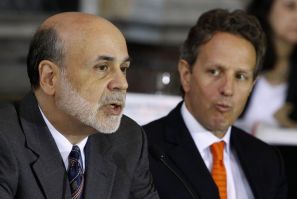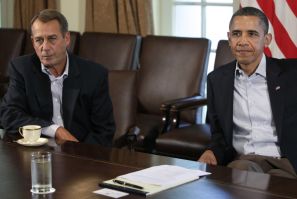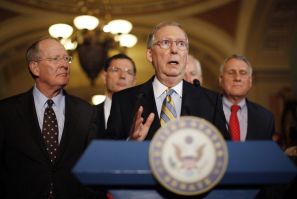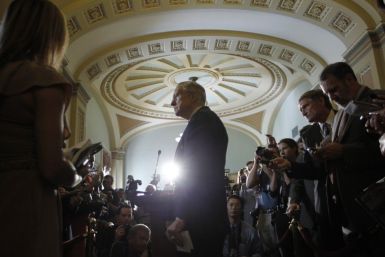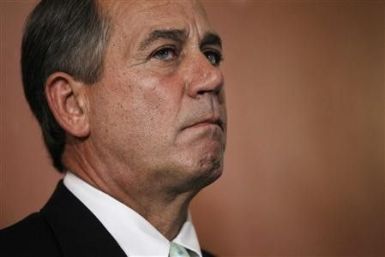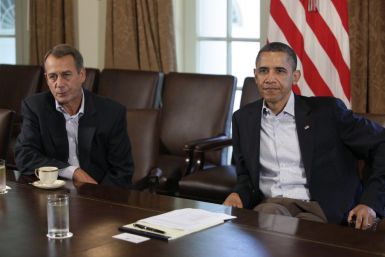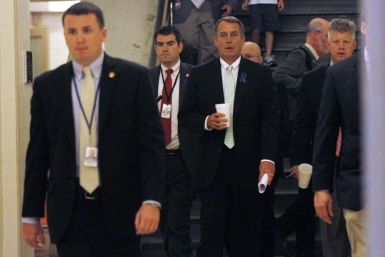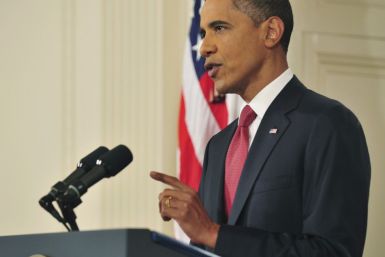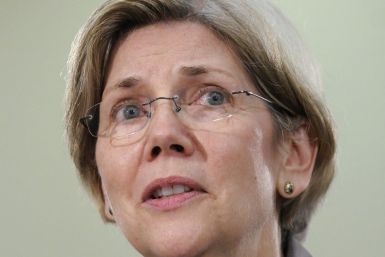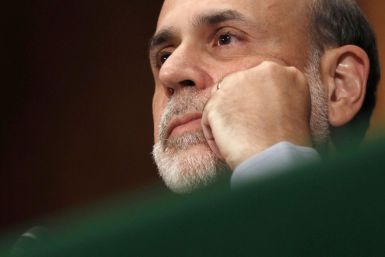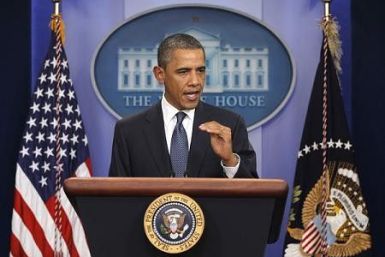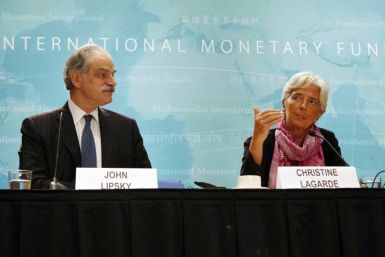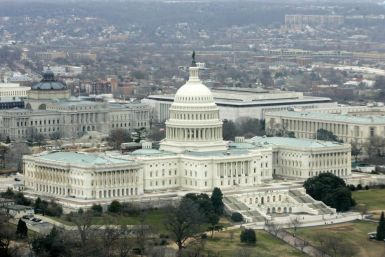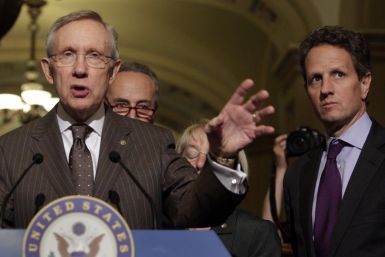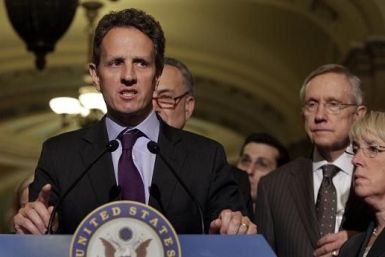Will the sky fall on August 2 if Congress fails to raise the debt ceiling?
A Republican proposal to cut the U.S. deficit faced delay and stiff opposition on Wednesday, raising the risk of a debt default and a ratings downgrade as the clock ticks toward a deadline less than a week away.
A Republican plan to cut the U.S. deficit faced delay and stiff opposition on Wednesday, raising the risk of default and a ratings downgrade as the clock ticks toward a deadline less than a week away.
There was little good news on the debt deal front early Wednesday: Democrats and Republicans are working on separately debt reduction plans, neither of which is likely to pass both chambers. A debt deal at this late stage is looking increasingly less likely.
A Republican plan to cut the U.S. deficit faced delay and stiff opposition on Wednesday, piling anxiety onto investors and ordinary Americans hoping for a late compromise to avoid a crippling debt default.
Elizabeth Warren, the law professor who persuaded the Obama administration to create the Consumer Financial Protection Bureau, will step down on August 1 from her role setting up the controversial new regulator, the Treasury said on Tuesday.
Will the sky fall on August 2 if the U.S. Congress fails to raise the debt ceiling?
Assuming President Barack Obama and Congressional Republicans can not resolve the debt deal dispute in eight days, the unfathomable will happen -- a default by the U.S. Government. But that begs the question: what will the U.S. Federal Reserve do, if the U.S. Government defaults?
The debt talks enter a critical stage Tuesday, and there's little time left to waste on rhetoric. The two parties have less than eight days to devise a plan to cut the deficit and raise the debt ceiling. U.S. and global stock and bond markets have remained calm and patient, but that may change soon, if the markets don't see progress in D.C.
President Barack Obama, in an address to the nation Monday night, reiterated the need for a "balanced approach" to deficit reduction -- one that includes both substantial budget cuts and revenue increases, and he warned that if the debt ceiling is not raised, it would trigger a "deep economic crisis."
Time and time again, Washington has shown itself incapable of coming up with a solution to the U.S. debt ceiling impasse. Meanwhile, August 2 looms closer and closer.
Call it 'dueling debt plans': Sen. Harry Reid, D-Nev. announced Monday a $2.7 trillion spending reduction plan, while House Speaker John Boehner, R-Ohio, announced a 2-stage spending cut plan, $1 trillion now, and $1.2 trillion next year. If the two sides can get down to negotiating, Monday will be a day of progress in the debt deal saga.
The International Monetary Fund Monday underscored the need for Congressional Democrats and Republicans to get their act together: it said the U.S. must raise its debt ceiling quickly, and get its debt under control, for the good of the global economy
Stocks were set for a lower open on Monday as political brinkmanship in Washington over the debt ceiling sparked fears of a U.S. rating downgrade, sending world equities lower and pushing gold to a record high.
Stock index futures fell on Monday as political brinkmanship in Washington over the debt ceiling sparked fears of a U.S. rating downgrade, sending world equities lower and pushing gold to a record high.
Less than 9 days remain before the U.S. Government defaults on is debt, and the debt impasse continues. So far, institutional investor patience has been remarkable, as Asian markets were relatively calm in Monday trading. But how long can that last, if Washington remains gridlocked?
Stock index futures fell sharply on Monday as political brinkmanship in Washington over the U.S. debt ceiling sparked fears of a U.S. rating downgrade, sending world equities lower and pushing gold to a record high.
Stock index futures dropped on Monday as a political impasse in Washington's debt ceiling talks fueled worries of a U.S. default, knocking world equities lower and pushing gold to a record high.
President Barack Obama and Congressional leaders have missed a self-imposed Sunday deadline reach a deal to raise the U.S. federal debt limit, bringing the default deadline for U.S. obligations even closer.
As time marches towards August 2, the day the US would presumably default if the debt ceiling isn't raised, calls are growing louder and louder for a resolution.
With financial markets on edge, White House officials and Republican leaders scrambled to reassure them that the United States will avert default and lift its $14.3 trillion borrowing limit before August 2.
U.S. Treasury Secretary Timothy Geithner Sunday reiterated his call for Congress to increase the debt limit immediately, underscoring that a delay may roil financial markets beginning as early as Monday. Geithner also said a default by Congress would jeopardize 80 million federal payments/checks per month.





